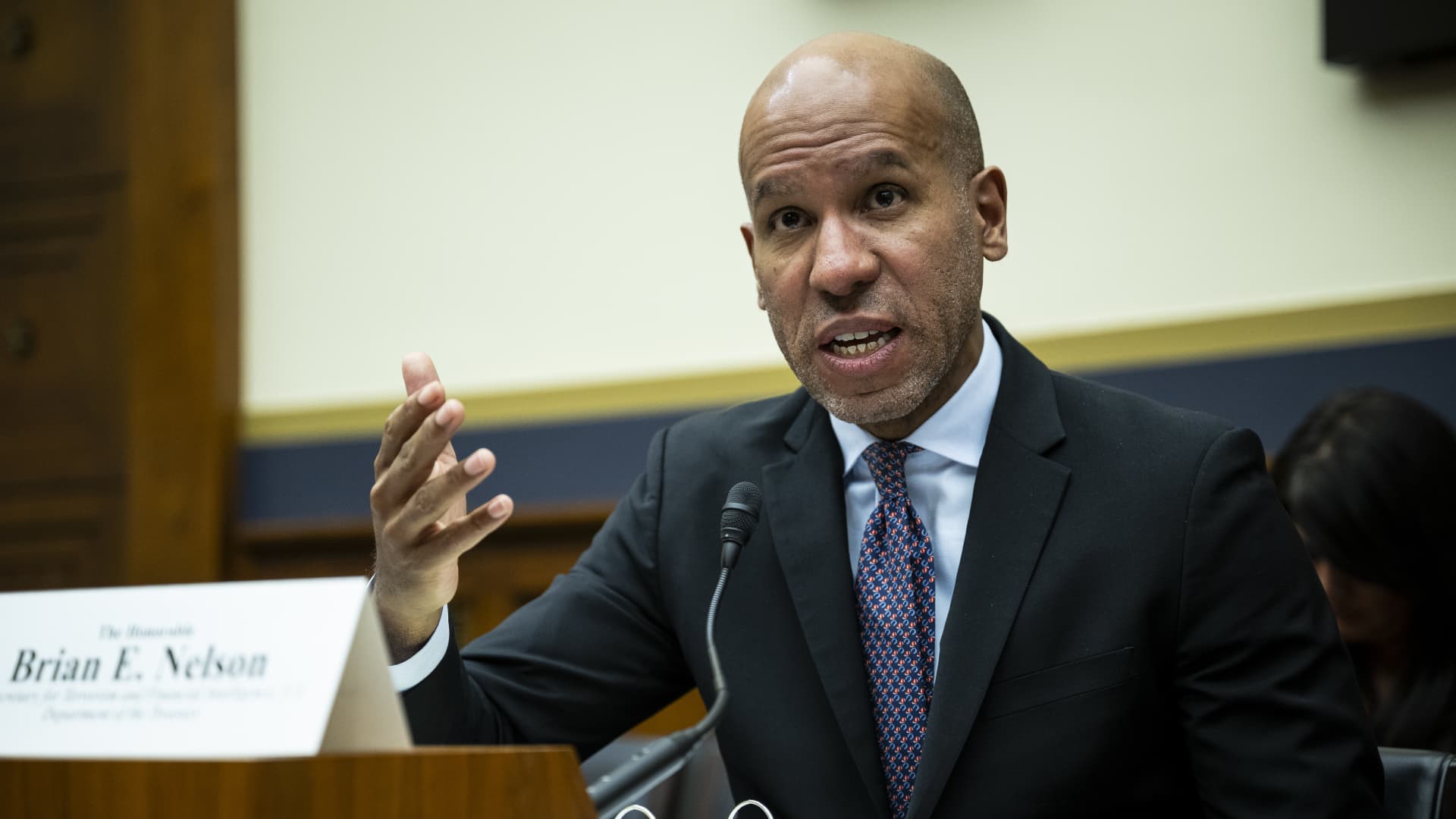Brian Nelson, US Treasury under secretary for terrorism and financial crimes, during a House Financial Services Committee hearing in Washington, DC, US, on Wednesday, Feb. 14, 2024. The hearing is titled “Oversight of the Financial Crimes Enforcement Network (FinCEN) and the Office of Terrorism and Financial Intelligence (TFI).”
Graeme Sloan | Bloomberg | Getty Images
WASHINGTON — Over 700,000 companies have submitted data to Treasury’s new beneficial ownership information registry, a senior Treasury official said on Wednesday. But the number is far below what’s needed to reach an estimated 32.6 million registrants by year’s end.
“I think as people in businesses become more aware of the requirement, the sort of provable experience of it only taking 15 to 20 minutes … I feel like, the sense out there (is) people are feeling more comfortable with this, but we recognize we have a lot of work left to do,” Brian Nelson, under secretary for terrorism and financial intelligence for the Treasury Department, said during an interview at the Hudson Institute, a think tank here.
The Financial Crimes Enforcement Network launched the BOI registry on Jan. 1. Established under the Corporate Transparency Act, the registry is intended to be a tool to aid law enforcement, banks and regulators to detect financial crimes.
Certain companies created or registered to do business before New Year’s Day have up to one year to file. Newly created companies have up to 90 calendar days to register their beneficial ownership information, according to FinCEN.
The rate of filings has picked up from the more than 100,000 recorded a week after the registry opened, but companies should be registering at a pace of about 2.7 million per month to meet stated expectations.
Nelson said the agency has been “on a full court press” to spread awareness about the registry.
“Both about the reporting requirement in the spirit of education and compliance and getting good quality information that will be valuable to law enforcement so that we can identify the bad actors, the shell companies, those that are seeking to abuse our financial system,” he added.
“A lot of small businesses, mom-and-pop businesses, have never heard of FinCEN,” Nelson said. “Maybe the vast majority have never heard of FinCEN.”
“And two… this is a new, novel reporting requirement,” he added.
Nelson said Treasury has been utilizing multi-lingual guidance, informational webinars, YouTube, and is collaborating with Secretaries of State and Chambers of Commerce to inform business owners.
“Law enforcement, national security, intelligence … this data is for them,” Nelson said. Uploaded reports require identifying credentials, such as the name and location of a registered company.
“The absence of this required information will at least shine a light on, ‘Hey, this is a concern and we should devote our law enforcement resources to try to address whatever this entity is that we don’t have visibility into the beneficial owner.'”
The BOI brings the U.S. into compliance with the recommendations of the Financial Action Task Force, which sets international standards for anti-money laundering and counterterrorism efforts. The United Kingdom, for instance, has had an active registry since 2016.
“The United States had no beneficial ownership regime to speak of,” Nelson said. “So, I have the great honor and privilege of being able to present that, as of Jan. 1, we do have a registry in place and that is working and that thousands are filing into.“
Read the original article here



